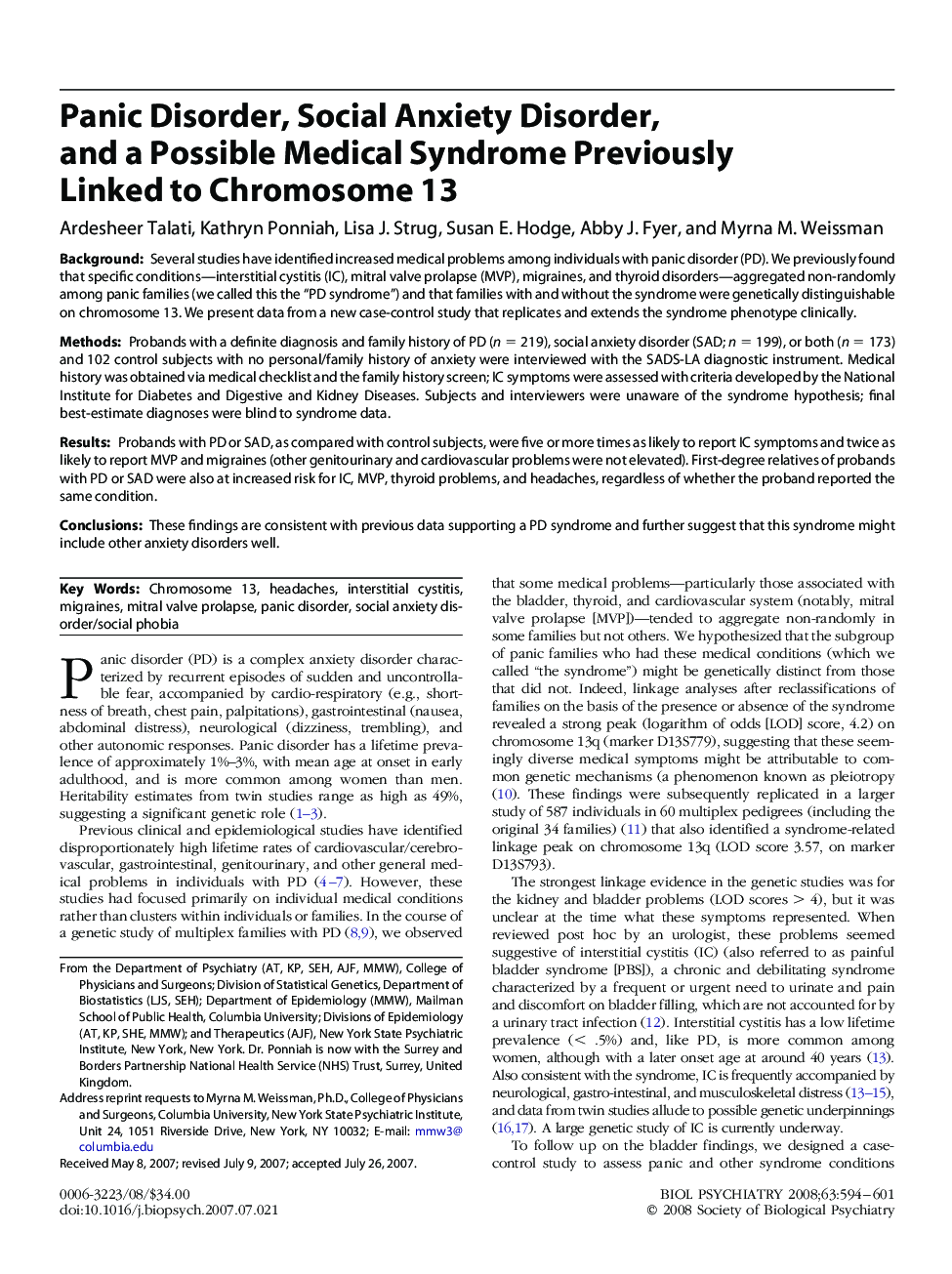| Article ID | Journal | Published Year | Pages | File Type |
|---|---|---|---|---|
| 4179334 | Biological Psychiatry | 2008 | 8 Pages |
BackgroundSeveral studies have identified increased medical problems among individuals with panic disorder (PD). We previously found that specific conditions—interstitial cystitis (IC), mitral valve prolapse (MVP), migraines, and thyroid disorders—aggregated non-randomly among panic families (we called this the “PD syndrome”) and that families with and without the syndrome were genetically distinguishable on chromosome 13. We present data from a new case-control study that replicates and extends the syndrome phenotype clinically.MethodsProbands with a definite diagnosis and family history of PD (n = 219), social anxiety disorder (SAD; n = 199), or both (n = 173) and 102 control subjects with no personal/family history of anxiety were interviewed with the SADS-LA diagnostic instrument. Medical history was obtained via medical checklist and the family history screen; IC symptoms were assessed with criteria developed by the National Institute for Diabetes and Digestive and Kidney Diseases. Subjects and interviewers were unaware of the syndrome hypothesis; final best-estimate diagnoses were blind to syndrome data.ResultsProbands with PD or SAD, as compared with control subjects, were five or more times as likely to report IC symptoms and twice as likely to report MVP and migraines (other genitourinary and cardiovascular problems were not elevated). First-degree relatives of probands with PD or SAD were also at increased risk for IC, MVP, thyroid problems, and headaches, regardless of whether the proband reported the same condition.ConclusionsThese findings are consistent with previous data supporting a PD syndrome and further suggest that this syndrome might include other anxiety disorders well.
